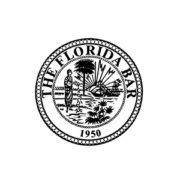Business Law Section Strengthens its Diversity Fellowship Program
/0 Comentarios/en News Release /por Jacques HartThe Business Law Section, one of the Bar’s largest, is marking a 50th anniversary by focusing on COVID-19 recovery — and strengthening a Diversity Fellowship Program, said newly installed Chair Leyza B. Florin.
“It’s helping feed the pipeline of leadership of the section, and it’s helping us really develop greater diversity,” Florin said. “And it’s really come full circle, to serve as chair at a time when, obviously, issues of social justice and equality are so important.”
A shareholder at Sequor Law who specializes in bankruptcy, asset recovery, and cross-border insolvency, Florin is a former chair of the Bankruptcy/UCC Committee.
Florin said she was drawn to the committee that oversees the Diversity Fellowship Program when she started climbing the leadership ladder years ago.
“I understand that I am the first Hispanic chair of the Business Law Section, for starters,” she said. “I am obviously a minority, female Hispanic, and certainly underrepresented in the area where I practice.”
Immediate past Chair Jacob “Jay” Brown recently announced the eight newest members of the Fellowship Program, who must be 36 or younger or have been Bar members for less than 10 years.
Fellowship Program participants are assigned a social mentor and a substantive mentor and are given a $2,500 stipend for two years. The stipend has been increased this year by more than $700, Brown said.
When they aren’t attending meetings, program participants, among other things, help with membership recruitment, organize section events, and write white papers for legislative positions.
“It doesn’t work out all of the time, certainly there are some people who come in and either don’t take advantage of the fellowship, or they use it, and we don’t hear from them again,” Brown said. “But we have a number of them who are remaining active and that are taking not just leadership positions, but high-level leadership positions.”
This year, Brown named two former Fellowship Program participants Outstanding Members of the Year — Giacomo Bossa, managing partner with Morris and Associates, in Doral, and Michelle Suarez, partner and founder of Florida Entrepreneur Law, P.A., of Ft. Lauderdale.
Bossa now serves as incoming chair of the Business Litigation Committee, one of the section’s largest, Florin said. Suarez is second vice chair of the Corporations Committee and the new chair of the Inclusion/Mentoring/Fellowships Committee, Florin said.
Florin said a number of Fellowship Program members are now serving as “second vice chairs” of section committees.
“In two years, we’re probably going to have the most diverse slate I have ever seen of any year of the section,” she said. “All but two of my appointees were female, so it’s pretty exciting.”
Third District Court of Appeals Affirms $19.5 Million Mandatory and Prohibitory Temporary Injunction Order in Case No. 17-01358 CA 22 – Hakim v. Tawil et al.
/0 Comentarios/en News Release /por Jacques HartSequor Law represented the Plaintiff in successfully obtaining a $19.5 million temporary mandatory and prohibitory injunction to protect the res of a constructive trust claim, which funds had been dissipated from Miami escrow accounts to offshore accounts during the pendency of the case. The Florida Eleventh Judicial Circuit Complex Business Litigation Court required the Defendants to return the $19.5 million to a Miami escrow account and prohibited further transfer of the funds. The Defendants appealed the adverse injunction order over the escrow funds by arguing, among other things, that the Court should not have entered the injunction without first determining it had personal jurisdiction over the defendants. Sequor Law represented the Plaintiff as Appellee in the appeal. After considering the briefing and oral argument, on February 26, 2019, the Third District Court of Appeal affirmed injunction order in a written opinion.
Section 1782 Remains One of the Most Powerful Discovery Tools as Appellate Courts Uphold its Use in Aid of Private Commercial Arbitration
/0 Comentarios/en News Release /por Jacques Hart28 U.S.C. § 1782, known colloquially as “Section 1782,” is a federal statute that allows foreign litigants and interested persons to request judicial assistance from U.S. federal courts to obtain evidence for use in a proceeding in a foreign or international tribunal. Section 1782 is highly relevant to a wide array of legal practitioners, both within and outside the U.S., as federal courts have concluded that evidence obtained through Section 1782 may be used in civil, criminal, probate, bankruptcy, marital, administrative, and regulatory cases. In short, if your client is not using Section 1782 as part of its litigation strategy, there is a good chance that your client’s opponent is using it to your client’s disadvantage.
Section 1782 is an alternative to the slower, and oftentimes cumbersome, cross-border discovery mechanisms such as letters rogatory and diplomatic or consular channels, because it can be pursued directly by the litigant or interested party without the involvement of the foreign court or tribunal or of the governmental authorities making up the traditional channels. Section 1782 was enacted decades ago and was revised extensively in 1964, but its widespread use did not take off until after the U.S. Supreme Court’s 2004 ruling in Advanced Micro Devices, Inc. against Intel Corp., or “Intel” as the seminal decision is widely known. In the Intel case, the Supreme Court clarified the statutory requirements that an applicant has to satisfy to obtain evidence using Section 1782 as well as a number of discretionary factors courts should also consider. If the applicant is successful, it can obtain U.S.-style discovery from persons or entities located where the application is filed (in the form of site inspections, requests for production of documents, or deposition testimony under oath) for use in the foreign proceeding. Typical Section 1782 subpoena targets include businesses (including affiliated companies and subsidiaries), financial institutions, professionals such as lawyers and accountants, brokers, escrow agents, art galleries and auction houses, former employees, and many more. This incredibly powerful tool can also be pursued on an ex parte basis (at least initially) and does not require the applicant to prove that she has exhausted her domestic evidence gathering tools in the foreign case or, significantly, that the evidence will be admissible in the foreign proceeding.
One issue that has been contested since Intel was decided is whether Section 1782 can be used in support of a private commercial arbitration (as opposed to treaty-based arbitrations where the use of Section 1782 is clearly supported by the applicable case law). Recently, the Sixth Circuit and Fourth Circuit Courts of Appeals broke with the Second and Fifth Circuits and determined that interested parties may rely on Section 1782 to obtain evidence for use in a privately constituted international arbitration proceeding. In September 2019, the Sixth Circuit analyzed the definition and interpretation of the word “tribunal” at length (relying on the ordinary meaning of the word, several dictionary definitions, the use of the word in legal writing, and an examination of the statute’s text, context and structure) and held that the language of Section 1782 unambiguously “includes private commercial arbitral panels established pursuant to contract and having the authority to issue decisions and bind the parties.” Abdul Latif Jameel Transportation Co. Ltd. v. FedEx Corp., 939 F.3d 710, 723 (6th Cir. 2019). A few months later, the Fourth Circuit followed. In March 2020, the Fourth Circuit agreed that private arbitral tribunals are “foreign tribunals” within the meaning of Section 1782, and rejected a litany of policy arguments advanced by the respondent. Servotronics, Inc. v. Boeing Co., 954 F.3d 209 (4th Cir. 2020).
Although district court decisions have been deeply divided on the issue since Intel, there is now strong momentum gathering at the appellate level favoring the use of Section 1782 in aid of private commercial arbitration. For example, California district courts had uniformly followed the Second and Fifth Circuits in holding that an applicant may not obtain evidence through Section 1782 for use in a private commercial arbitration—until recently. In February 2020, a federal court in the Northern District of California adopted the reasoning and conclusion of the Sixth Circuit’s decision regarding Section 1782’s application to private international arbitration. HRC-Hainan Holding Company, LLC v. Yihan Hu, No. 19-mc-80277, 2020 WL 906719 (N.D. Cal. Feb. 25, 2020). That case is now on appeal, and the Ninth Circuit is positioned to rule on the issue.
In sum, the already powerful Section 1782 has seen its applicability bolstered by two of the highest courts in the U.S. indicating that Section 1782 will remain an indispensable tool in any international lawyer’s toolbox for the foreseeable future.
About the authors:
Arnie Lacayo (alacayo@sequorlaw.com) is a Shareholder and Cristina Vicens (cvicens@sequorlaw.com) is an Attorney at Sequor Law. Lacayo and Vicens focus their practices on investigations, financial fraud and corruption-related asset recovery cases, as well as cross-border insolvency. Both Lacayo and Vicens have extensive experience with the Section 1782 statute, including in some of the most-cited cases in the U.S.
Sequor Law

SOBRE NOSOTROS
ENLACES RÁPIDOS
DIRECCIÓN
MIAMI
1111 Brickell Avenue
Suite 1250
Miami, Florida 33131
WASHINGTON, D.C.
1200 G Street NW
Suite 340
Washington, D.C. 20005
DATOS DE CONTACTO
Teléfono: (+1) 305-372-8282
Fax: (+1) 305-372-8202
SÍGUENOS EN:
NUESTRA HOJA INFORMATIVA
Regístrese para recibir noticias de la industria y la empresa todos los meses.




Sequor Law es una firma internacional de abogados que representa instituciones financieras, gobiernos soberanos, empresas estatales, empresas públicas y privadas, profesionales de insolvencia y clientes individuales en las áreas de recuperación de activos, fraude financiero, insolvencia y litigios de servicios financieros.